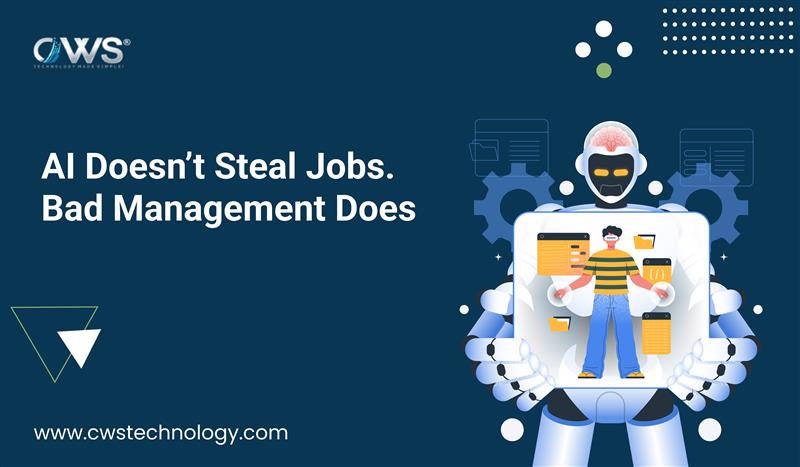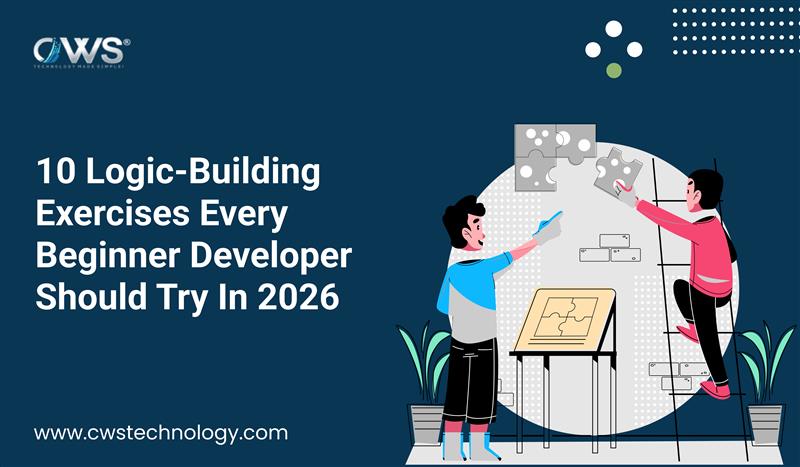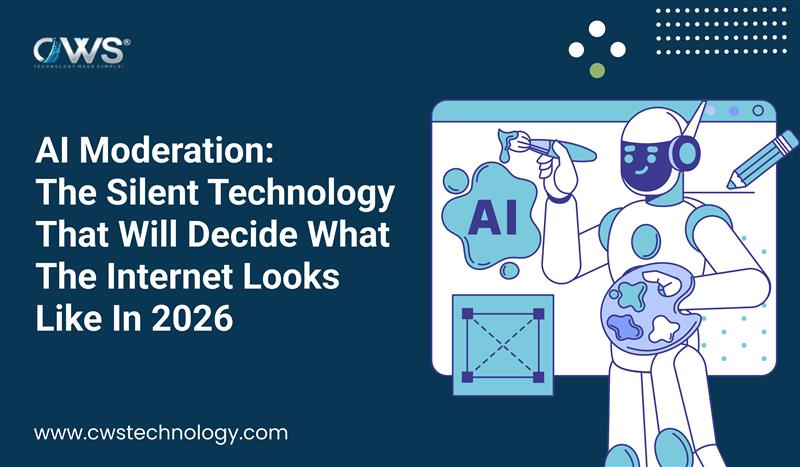When headlines scream “AI is coming for your job!”—it’s easy to panic. From factory floors to design studios, automation and artificial intelligence are quickly changing the rules of work. But here’s a radical truth: AI doesn’t destroy jobs—bad management does.
The uncomfortable reality is that it’s not the technology that’s to blame for layoffs or instability. It’s the way businesses adopt (or fail to adopt) that technology. In this blog, we’ll dissect the real reasons behind job displacement, why the management mindset needs a reset, and how smart companies are using AI to empower—not replace—their teams.
The Blame Game: Why AI Is the Convenient Scapegoat
AI is a tool. Like electricity or the internet, it doesn’t act on its own—it amplifies human decisions. The problem arises when leaders:
- Automate blindly without understanding workflows
- Use AI to cut costs instead of creating value
- Fail to upskill or reskill their employees
- Ignore change management strategies
When layoffs happen post-AI implementation, it’s not the algorithm making the call. It’s a decision rooted in short-term thinking and poor leadership.
Job Loss or Job Shift? Understanding the Real Impact of AI
Research from the World Economic Forum predicts that while 85 million jobs may be displaced by 2025, 97 million new roles will emerge—ones more aligned with the division of labor between humans, machines, and algorithms.
The future of work isn’t jobless. It’s job different.
Companies that treat AI as a collaborative partner rather than a cost-cutting weapon are already seeing benefits:
- Human + AI customer support reduces wait times and burnout
- AI-assisted developers debug code faster, not eliminate coders
- Marketers using AI generate deeper insights, not get replaced
So the question isn’t Will AI take your job?
It’s Will your leadership help you adapt in time?
Bad Management: The Real Threat to Human Potential
Let’s get brutally honest: many leaders are unprepared for the AI revolution.
- They lack a clear AI adoption roadmap
- They fail to communicate the why behind automation
- They don’t invest in upskilling or internal training
- They use AI as a shield for weak strategic planning
This leads to fear, confusion, resistance—and ultimately, failure. Not because AI didn’t work. But because the human part of the system was ignored.
What Great Leaders Are Doing Differently
Forward-thinking companies aren’t afraid of AI. They’re humanizing it.
- CWS Technology, for example, helps businesses implement AI that works with people, not against them.
- They train teams to embrace change, not fear it.
- They design digital transformation strategies that create new career paths, not eliminate existing ones.
The difference? Empathy. Communication. Vision.
That’s what separates reactive companies from resilient ones.
A Quick Leadership Litmus Test
If you’re a business leader, ask yourself:
- Have I communicated how AI will affect my teams in plain language?
- Am I investing in tools and training for long-term growth?
- Do I know which roles can be enhanced—not eliminated—by AI?
- Have I invited employee feedback on digital transitions?
If the answer is “no” to most of these, the problem isn’t AI.
It’s the leadership approach.
The Future of Work Is Human-Led, Tech-Supported
AI isn’t the villain. It’s the next step in our evolution—just like the assembly line or the personal computer.
The danger lies in how we manage this transition.
Companies that succeed in the AI era will be those who:
- Embrace change
- Invest in people
- Lead with clarity and conscience
Because at the end of the day, the future isn’t man vs. machine. It’s man with machine—guided by better management.
The next time someone says, “AI is stealing jobs,” challenge them to look deeper.
Are jobs disappearing because of the tech—or because of leadership that couldn’t evolve?
AI doesn’t eliminate people. Poor strategy does.
And in 2025 and beyond, the winners will be the companies that understand that distinction—and lead accordingly.








